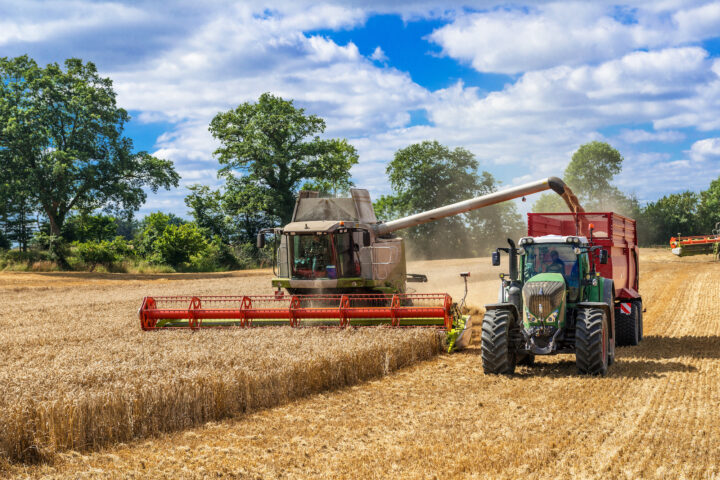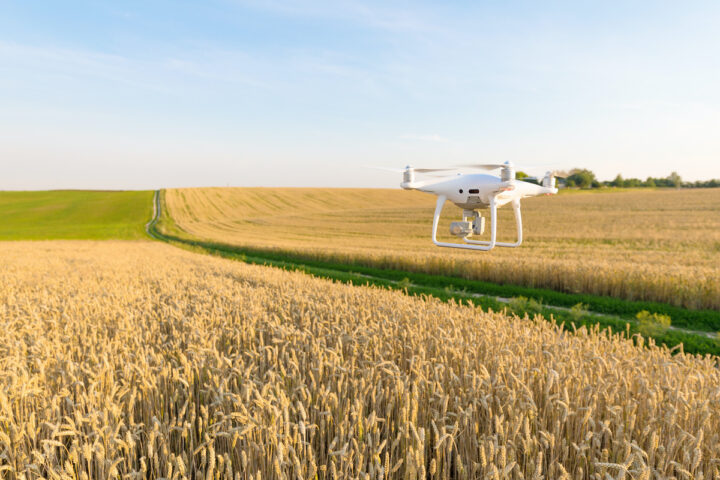
Research into fungal diseases in Lyon
Fungal diseases are one of the greatest threats to global food production. They endanger crops, cause billions in damage every year and have always put farmers under pressure. A detailed report by RTS provides insights into Bayer's global research and development centre in Lyon, where new, environmentally compatible fungicides are being researched.
Monday, July 28, 2025
Opened in 2021, the centre is one of the most important locations for crop protection research in Europe. Around 150 scientists from the fields of chemistry, biology, toxicology and data science are working there to develop active ingredients against fungal pathogens. The focus is not only on efficacy, but also on environmental compatibility. Natural substances – such as those found in plants or microorganisms – that already have fungicidal properties in nature often serve as starting points. More than 200,000 substances are tested each year. Only a few of these pass all the test phases and are approved for market release.
Complex research – also with AI
Developing a new plant protection product is a complex process: it takes an average of over twelve years and costs around 300 million euros. In addition to their chemical efficacy, new products must pass strict environmental and safety tests – for example, to assess their impact on soil, beneficial organisms, water and human health. Artificial intelligence accelerates research by helping to identify promising molecules more quickly and assess their environmental risks more accurately. Collaborations with universities and start-ups also play an important role.
Targeted protection instead of broad impact
The new generation of fungicides is designed to combat pathogens in a targeted manner while minimising harm to beneficial organisms and the ecosystem. The trend is towards active ingredients that are effective in small quantities, break down quickly and leave few residues. For the environment, consumers and users, this means less pollution with the same effect. Fungal diseases such as late blight and downy mildew also pose major challenges for Swiss agriculture. At the same time, environmental and consumer protection requirements are increasing. Innovative solutions from research – such as those in Lyon – could help to secure yields while reducing environmental impact. The RTS report impressively demonstrates how modern plant protection works today: as an interplay between biology, chemistry, technology and environmental technology.
Sources
Kindly note:
We, a non-native editorial team value clear and faultless communication. At times we have to prioritize speed over perfection, utilizing tools, that are still learning.
We are deepL sorry for any observed stylistic or spelling errors.
Related articles

«Biologicals» – biologically active substances from research
Modern crop protection products must be safe, targeted and short-lived – i.e. degraded shortly after reaching their target – without leaving behind biologically active degradation products.
Content in German

The great benefits of biotechnology in agriculture
Bioengineered crops have been cultivated in many parts of the world for around 25 years. Several publications bear witness to the great benefits of biotechnology in agriculture. The cultivation of the plants has a positive effect on the environment, the climate and yields for farmers.

Public funds for avoidable crop failures: neither sustainable nor resource-efficient
The reduced use of plant protection products is causing much smaller wheat and rapeseed harvests. A study carried out by Swiss Agricultural Research reveals that such crop failures can only be offset by state subsidies. This is neither sustainable nor resource-efficient.

Lack of diversity becomes an existential problem
The dwindling genetic diversity in fields is becoming an increasing problem. Unfortunately, this problem is growing steadily, partly because politicians in Switzerland and the EU are viewing the issue through ideological lenses instead of listening to science.

Science sounds the alarm: Federal Council draft slows down innovation
The new genomic breeding methods are regarded worldwide as a source of hope for climate-resilient agriculture – precise, efficient, and safe. While countries such as the US, Japan, and soon the EU are pushing for deregulation, the Federal Council's regulatory proposal remains tentative. Now researchers and industry are sounding the alarm: the proposed rules are so strict that they would effectively block innovation and application.

Approvals are becoming a brake on innovation worldwide – and agriculture is being left behind
New findings from the United States highlight what has long been a reality in Europe and Switzerland as well: the development and approval of new crop protection products has become such a complex, lengthy, and costly process that even innovative, sustainable solutions can hardly reach the market anymore.

Why we need high-tech for tomorrow's agriculture
From genome editing to precision field spraying – innovations can strengthen the agriculture of tomorrow. They help to ensure that agricultural land can be used better. Crops are protected more efficiently. According to a survey by gfs.bern, the Swiss are very open to the use of modern technologies. This also applies to new breeding methods such as genome editing.

